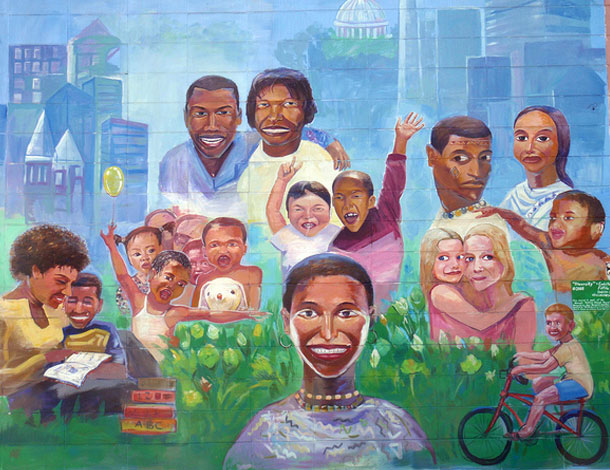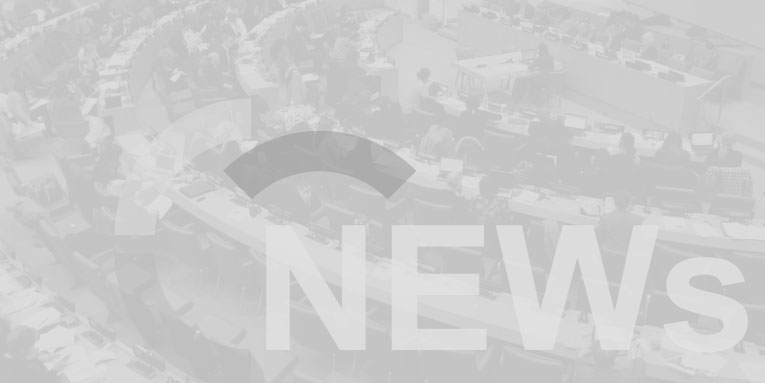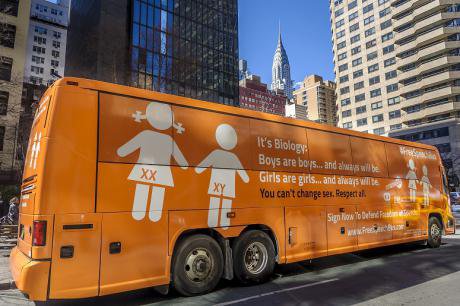Today, May 15th, is the International Day of Families. But what do families, human rights and gender justice have to do with one another?
Established principles of international human rights law uphold the rights of all individuals within families to be free of coercion, violence and discrimination; free to found families on an equal basis; and free to become a part of diverse forms of families around the world. Yet today we stand witness to ongoing violations of these intrinsic rights across regions, and the failure of states to ensure these rights and to hold perpetrators accountable.
At the same time, conservative actors are leading the charge at the United Nations and other human rights spaces to undermine and chip away at our rights protections themselves. Ironically, many of these actors use emerging discourses around ‘the family’ to defend violations committed against family members, to bolster and justify impunity, and to restrict equal rights within and to family life.
Conservative discourses undermining rights
We are increasingly seeing the spread of a conservative discourse in human rights spaces which seeks to employ the term “family” strategically – to reserve human rights for the few instead of for all, to promote inequality, and to weaken our existing human rights protections.
Regressive actors are collaborating across borders and religions to attack human rights standards with appeals to a narrow and discriminatory conception of ‘the family’ and ‘family values,’ including the “Protection of the Family” resolutions at the United Nations.
Equality in family laws
From country to country, personal status or family laws fail to recognize the diversity of families, and discriminate against women and restrict their rights to family life and other fundamental freedoms.
Not only do these laws continue to grant unequal rights to custody; provide cover for coercion, abuse and sexual violence; and delimit women’s access to money – states continue to attempt to back out of their human rights commitments to change these laws and challenge discriminatory gender stereotypes by reference to national sovereignty, tradition, religion and culture.
Families are diverse
Contrary to the claims of anti-rights actors, and as the human rights framework has recognized time and again, families are diverse and take many different forms around the world. Family has always evolved and today manifests itself in many forms such as nuclear families, single parent families, cross-generational families, families with same-sex parents, childless families, and child-headed families.
The following resources exist to support progressive advocacy on the family which can counteract oppressive anti-rights discourses around family, push the recognition of the diversity of family, and promote equal rights and justice within families.
Please share these with your networks, let us know of your key resources, and tweet using the hashtag #DayOfFamilies
1. Reclaiming Family Values: How to address family in social justice activism
A guide for civil society and activists, especially focussed on Europe. It explains what family equality is, and offers ten strategies to include family in our work through planning, funding, research, communication and messaging, lobbying and advocacy, cross-movement alliances, media work, litigation, working with faith, and engaging with opponents to equality.
2. Key Opposition Discourses
This chapter of the Observatory on the Universality of Rights (OURs) Trends Report 2017 lays out some key discourses employed by anti-rights actors engaging at the UN, including the “Protection of the Family” agenda that functions as a potent umbrella concept housing multiple patriarchal and anti-rights positions
3. Lobbying for Faith and Family
This study from NORAD focuses on religiously-motivated lobbying groups at the UN that form powerful alliances across religious divides – Catholics and Mormons; Christians and Muslims; Russian Orthodox and American fundamentalists – finding common ground in “traditional values” and “familly” agendas.
4. Joint Regional Declarations on Family and Traditional Values
The Silom Manifesto, Johannesburg Declaration, and São Leopoldo Declaration, are regional declarations that were drafted through a series of dialogues between advocates, activists, theologians and researchers that were coordinated by GIN-SSOGIE. The declarations reclaim and affirm the diversity of natural families in Asia, Africa, and Latin America and the Caribbean respectively.
5. Why Muslim Family Law Reform? Why Now?
As part of Musawah’s Campaign for Justice in Muslim Family Laws, this policy brief distills the 10 strongest arguments to make the case for the reform of Muslim Family Laws, especially since resistance to reform is based on religious justifications.
6. Protection of the Family – A Human Rights Response
This brief from the Sexual Rights Initiative and the Association for Women’s Rights in Development lays out key human rights standards relating to the rights of individuals within family contexts in response to the dangerous “Protection of the Family” agenda which conflicts with established principles of international human rights law, including universality and indivisibility.
7. “Protection of the Family”- What it means for human rights
This interview with Neha Sood (then of the Sexual Rights Initiative) clearly lays out the basics about the “Protection of the Family” resolutions and how they are part of a push to erode the universality of rights.
8. When “Family” is Weaponized Against LGBTQI People at the United Nations
This fact-sheet from GIN-SSOGIE details the ways in which the religious right have used concepts relating to the family to push against the rights of LGBTQI people, and sets out a progressive response based on anchoring “Family” within lived realities and inclusive faith-based Messaging, further elaborated in the accompanying “Faith Focus” fact-sheet.
9. Thematic Report on Discrimination in Family and Cultural Life
In this report, the UN Working Group on discrimination against women in law and in practice examines discrimination against women and girls in cultural and family life. Reaffirming equality between the sexes and family diversity, the report states the necessity of applying the principle of equality in all forms of family law, in secular family law systems, State-enforced religious family law systems and plural systems.
10. CEDAW and Muslim Family Laws – In Search of Common Ground
This report from Musawah examines States parties’ justifications for their failure to implement CEDAW with regard to family laws and practices that discriminate against Muslim women. Musawah present responses based on their holistic Framework for Action and give recommendations to the CEDAW Committee for a deeper engagement on the connections between Muslim family laws and practices and international human rights standards.
11. Report on Protection of the family – contribution of the family to the realization of the right to an adequate standard of living for its members
This report from OHCHR lays out the relevant provisions of human rights law with regard to the family, including the right to found a family, the right to equality in the family, and the right not to be subject to violence or abuse within the family
12. Love is a family value: Supporting all families and family members
This video from a special event of the UN LGBT Core Group from 2014 documents hundreds of LGBT activists and UN diplomats gathering to celebrate Human Rights Day at the UN with a particular focus on the role of families and LGBT people
13. How the far right is weaponizing “the family”
This article presents an insider view of the World Congress of Families 2019, where a global ultra-conservative lobby came together under the seemingly innocuous ‘pro-family’ banner to strengthen their resistance to sexual and reproductive rights, the rights of women and LGBTQI people, and the rights of migrants.
14. Strong concerns on the resolution on the Protection of the Family (HRC35)
This statement from 13 civil society organizations, including feminist organizations and those working on the rights of older persons, voices concern around the 2017 resolution protection of the family. It rejects the resolution’s its failure to reflect research that the family is the primary site of violence against older persons, its narrow definition of family, and its aim to subvert the universality of international human rights.
15. International Family Equality Day
International Family Equality Day (IFED) is a global campaign to celebrate the diversity of families annually on May 3rd. IFED 2020 focused on Family Diversity in Education, calling for integration of family diversity in the education system and curricula. The campaign materials include a collection of affirming educational materials.



